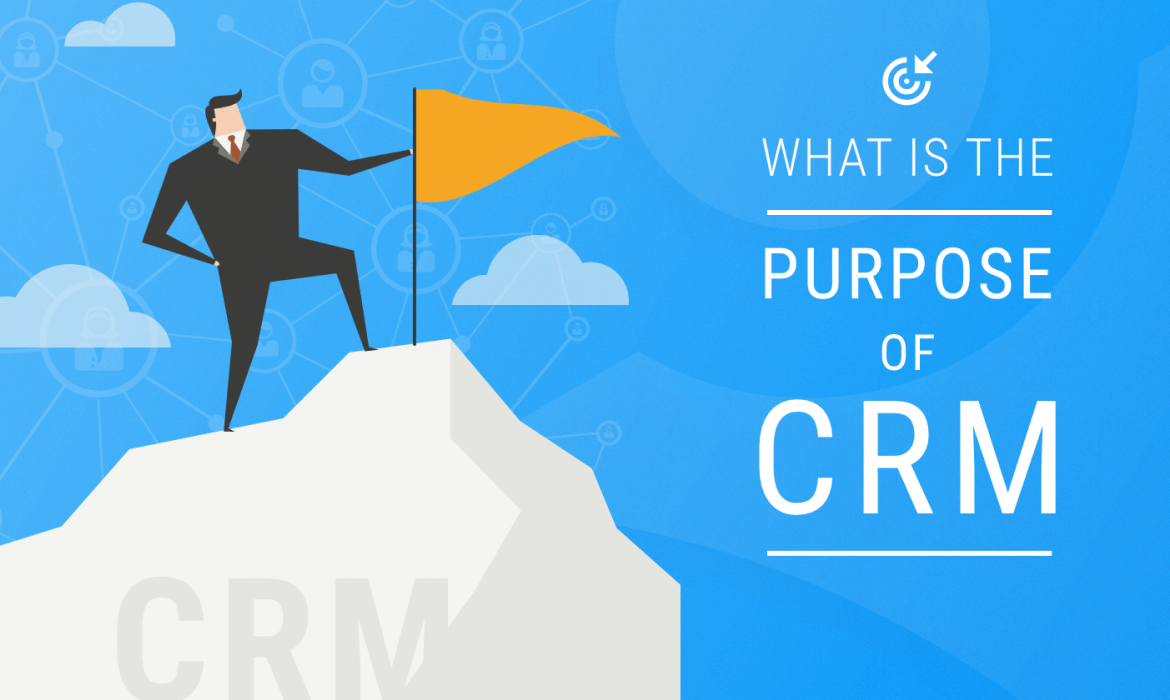Can you identify the main goal in business – to sell a product/service or to make a client satisfied? Actually, it is a wrong direction to differentiate these two goals since they are connected. Certainly, a fresh business may bet on sales without client satisfaction but obtain no further progress. Companies putting their clients’ contentment at the first place will get benefit in the long-term perspective.
Future success relies upon versatile indicators and factors among which CRM stands out. Regardless of all possible definitions of this acronym, the combination of letters C, R, and M in the commercial world is referred to customer relationship management. Otherwise speaking, this term comprises a set of tasks to guide interplay with clientage and leads. Still, the purpose of CRM is much wider than it seems.
1. Why do you need a CRM?
Earning profit is the principal and final goal of any organization, even if your business is not big yet. Being a catalyst for interplay with clients, CRM aids the earning power enhancement. Hence, an entrepreneurship will be more successful if the mentioned technology is streamlined. In that case, it is often referred to as a software tool designed to cope with versatile tasks like managing contact/sales, business transactions etc. But it fits not only sales. Technical features of most CRM solutions allow its implementation in different areas of workflow including client services, labor resources department, supply-chain operation and so on.
Companies neglecting to actualize the purpose of customer relationship management system are likely failing to exploit their potential at full breath. In simple words, they could have saved more money, increased client base, streamlined new focus areas, etc. Are you doubt in such hidden reserves of performance that can be revealed via CRM? Perhaps, the following advantages may change your mind.
2. Key benefits of CRM
Ask Google about pluses one can derive from realizing the purpose of a CRM system. You will be surprised to get hundreds of opinions why this technology is sought-after on the market. Our opinion coincides with most of the miscellaneous sources but we would like to highlight the following benefits:
Improved Informational Arrangement
A complete informational base about clients is the key to provide them with a positive experience. In fact, any small detail may be valuable and relevant to operational demands. In that sense, the purpose of a CRM system is to organize data for your convenience. All memorable dates, important notes, reminders, and miscellaneous data are kept and accessible at any time from any device. That, in turn, saves time, nerves, and, obviously, money.
Enhanced Interplay
The reverse side of the innovation deals is not with clients but team-spirited workforce. Let’s imagine that your best employee decided to drastically change the life and left his or her job. Ten years ago or more, such a situation could bring terrible consequences as one person was in charge of communication with multiple clients and processing of their data. You may ask, “What is the purpose of CRM in that scenario?” Actually, the software tool won’t let it happen since all contact info, preferences, history and other intelligence are not concentrated around personnel but stored in the cloud. In other words, you may change employees of your customer support without a significant impact on the performance.
Improved Customer Support
Time is money. I.e., your customers’ time is also valuable. An unsatisfied client is the last thing desired by any company. So, how is it possible to resolve a problem fast and efficient? CRM comes to rescue since it provides all essential data such as past purchases, service history, preferences, etc. within seconds to aid in finding a solution. In practice, being armed with sufficient intelligence means to locate a solution within a few minutes. Hence, CRM shifts client service to an advanced level.
Task Automation
What does a sale consist of? The answer is dozens of small tasks including versatile paper works, report tasks, calculations, legal issues and so on. Still, all these secondary transactions can be accomplished with ease using an appropriate CRM system. So, the burden of secondary tasks is shifted from the shoulders of personnel to the magic of automation. Once again, the saved time and efforts can be focused on more substantial tasks and solutions.
Team Work Efficiency
Regardless of the number of your team members, a CRM tool enables some top-rated cooperation. Such functional versatility is especially beneficial for coordination versatile departments like procurement, marketing, client service, and trade. All intelligence is stored in one place with access opportunity to all your team members. An immediate data update and sharing will minimize any unnecessary misunderstandings and confusions that are possible at uncoordinated operation.
Improved Reporting and Analysis
Your future success depends on proper analysis of versatile metrics. CRM systems hold data in one place to make it accessible to you at any time from any place and device. As soon as you accomplished a required analysis, you obtain the capability to make an automatic report for optimizing your time. You should not be afraid of losing the necessary report since you can prioritize it for the future utilization. Perhaps, in that case, the purpose of CRM is to lay the foundation for your future success.
3. What is the purpose of a CRM?
We have described several pros each of which bears a certain goal load for the business. Still, it is a mistake to dwindle this notion down to one definition. Obviously, the primary purpose was already mentioned. Yet, it is a broad meaning comprising the activity of an entire company or entrepreneurship.
As for CRM, it deals mostly with clients. Hence, its purposefulness is associated with this focus area. On this account, many salespeople have a definite answer to the question “What is the purpose of a CRM system?” – to keep clients. However, the said purpose entail other tasks including attracting leads and reducing costs. It is a fact that retaining the old client base is cheaper than alluring new clients. So, the notion of the general purpose of the said solution is mostly abstract. Nevertheless, the practical usage of CRM tools crosses out any abstractedness.
According to Develux, technical features of most CRM solutions allow its implementation in different areas of workflow including client services, labor resources department, supply-chain operation and so on.
4. Purpose of a CRM on practice
A successful businessman needs exact answers to questions. Any shortage may result in a negative profit that is undesirable. On this account, we introduce purposes of embedding a technological solution for steering interplay with clients in practice.
- Guiding any kind of interplay and/or cooperation with clients;
- Acquiring new clients;
- Servicing current client base;
- Keeping clients;
- Identification of high-rated clients against the low-rated ones;
- Information update along with technical assistance on web resources 24/7;
- Following an individual approach to each client;
- Providing an effective mechanism to guide and schedule follow-up sales;
- Tracking all contact points between a company and a client;
- Identifying possible problems at early stages;
- Providing an effective mechanism to deal with client complaints;
- Tracking individual preferences through Internet activity;
- Personalizing product offerings to each client.
Frankly speaking, the list is far from completeness due to a variety of CRM system use options.
5. How to effectively use CRM?
If we touched on the theme of usage, the readers will have incentives on how to maximize the mentioned technology efficiency. Everything is rather simple and can be described in a scheme NEEDS – PLAN – TRAINING – DATA QUALITY. Let’s see in detail.
Your core needs usually consist of smaller demands of each department. As soon as you clearly define your targets, as well as expectations, of embedding the CRM tool, the streamline can be deemed as settled down to a proper course. Needs are not necessary to be solid during the entire period of usage. It is quite possible that you start using CRM for developing client information systems and then shift to delivering services/products to the current clientage.
The plan is the foundation. It should be flexible to adapt to possible market/industry alterations. Certainly, the defined needs are the building material for the plan. Moreover, it is a bad practice to structure the plan in accordance with software capabilities. Finding the tool to meet certain demands is preferable than shrinking demands to a certain software.
The next step involves the very introduction of the tool to its users. To get the most of the tool, users must know oats rather than simply follow instructions. Besides, they must feel the opportunity to take off the burden of certain tasks and assign them to the tool.
CRM deals with data and the data are the essence of commercial activity. So, the more qualitative intelligence you have, the more fruitful your activity is expected. It is a mistake to suppose that the programming code will do everything for you. Only a proper cooperation between a human and a machine lead to success.
6. Conclusion
As you can see, the purpose of CRM system is multifaceted including monetary aspect, workflow improvement, automation of certain tasks, streamlining new ideas and many other useful things. You are free to cast a vote for the liked one, as well as to take advantage of the innovation for own demands.
Implement an essential business tool to your workflow to bring order and achieve sustainable sales growth. Ready to supercharge your business with the powerful productivity tool? NetHunt CRM is here for you!

